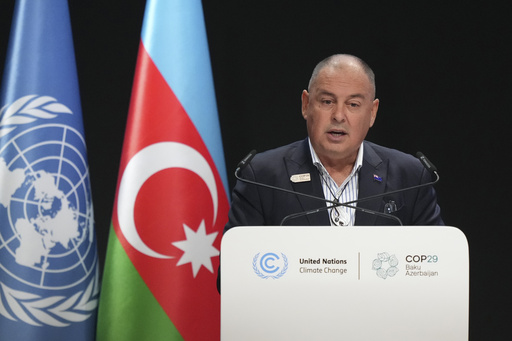
BEIJING — On Monday, China emphasized that the upcoming visit by the Prime Minister of the Cook Islands to Beijing this week is not intended to target any party in the South Pacific. This statement comes amid a diplomatic dispute between the small island nation and New Zealand, its primary aid provider.
The trip is seen as part of China’s broader strategy to foster relations with smaller island nations in the South Pacific. Critics argue that Beijing is leveraging its economic influence in an effort to diminish the sway of the United States and its allies, while simultaneously seeking access to the region’s mineral resources, fisheries, and elevated global prominence.
Chinese Foreign Ministry spokesperson Guo Jiakun expressed on Monday, “The relationship between China and the Cook Islands is not aimed at any third party and should remain free from disruption by external forces.”
In response, New Zealand’s Foreign Minister Winston Peters noted that he had previously urged Cook Islands Prime Minister Mark Brown during a phone conversation to consult with New Zealand regarding the planned Comprehensive Strategic Partnership and additional agreements intended for signing in China.
Peters’ office further conveyed in a statement on Sunday that the lack of prior consultation raises significant concerns for the New Zealand government.
The Cook Islands consist of 15 small islands home to approximately 15,000 residents, and it possesses an extensive exclusive economic zone. It has enjoyed self-governance in free association with New Zealand, its largest aid supporter, for nearly 60 years. This arrangement allows Cook Islanders to acquire New Zealand citizenship and travel documents, enabling them to live and work in New Zealand.
Prime Minister Brown stated that New Zealand had been informed that the agreement with China would not involve security matters, which means the specifics of any deals do not require New Zealand’s review. The Prime Minister’s visit to Beijing, which begins this weekend, is expected to focus on sectors such as renewable energy and agriculture, while also addressing maritime issues and seabed mineral development. These are areas of heightened concern for New Zealand, Australia, the U.S., and other nations.
The uncertainty surrounding these agreements has intensified apprehension, especially following the recent shift of the Solomon Islands from diplomatic allegiance to Taiwan towards China, accompanied by a confidential security agreement. This pact has ignited fears regarding the potential for a Chinese security presence in a region historically dominated by the U.S., Australia, and New Zealand.
Concerns about this security accord include the possible establishment of a Chinese naval presence and the presence of ground troops in the area, which could impede access for neighboring countries. The region is notably close to Australia and holds historical significance, having been the battleground for fierce conflicts between Japan and the United States during World War II.

